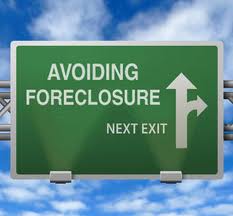The Short Sale
What is a short sale?
First thing, a short sale is anything but short. When you hear the term "short sale", the natural inclination is to think that this is something that will happen quickly. This could not be further from the truth. Short sales take a very long time and often don't happen at all.
The "short" part of a short sale is the bank taking a short on the note in order to make the sale happen. If a homeowner owes more money on their home than the current market value and they need to sell their home, than a short sale may be an option.
A lot of homeowners bought their homes at the peak of the market when the prices were at their highest. Many bought their homes with small down payments, resulting in large mortgages with very high loan to value ratios. After the prices dropped, they found themselves upside down; owing more on their mortgage than their home was worth.
Owing more on your mortgage than your home is worth at the current market value is not by itself enough reason to get a short sale. The barrower still has an obligation to pay back the loan. The bank would expect the barrower to just continue to make payments as agreed. If the owner needed to sell their home and the sale of the home did not bring enough money to pay the full loan amount the owner would be expected to bring the difference to the closing table.
Seller
The seller in a short sale is still the owner of the home. As the owner they retain all rights of ownership which include the right to accept decline or counter an offer from a buyer. If they accept an offer that will not bring enough money to close the deal and pay off the loan, than the lender will need to approve the offer.

For a bank to consider a short sale the owner, who is also the barrower will need to show that they have some kind of financial hardship where they are unable to continue making the mortgage payments. They will need to show the lender pay check stubs, bank statements and tax returns. The barrower will need to show the lender all the same documentation that they originally gathered for the loan. This time instead of trying to show the ability to make the loan payments, they are trying to show the inability to make the loan payments. The lender will continue to require updated documentation throughout the short sale.
There are other options that a borrower has when they can't afford to make their mortgage payments. If they qualify, the borrower can apply for a loan modification. This is a good option if it is available because it does not have the negative impact on the barrower's credit.
They can also apply for a deed in lieu which means the bank agrees to take possession of the house in lieu of the borrower paying off the loan. This will have a negative impact on the barrower's credit but it they will not be obligated to pay the loan deficiency.
Another option is that the borrower can continue to live in the house without making their mortgage payments and the bank will start the foreclosure process. This process will take over a year, during which time the owner in default will continue to live in the house rent free. This option will have the greatest negative impact on the barrower's credit and they will not be forgiven of the loan deficiency.
Lender
If the borrowers financial situation makes it clear that foreclosure is imminent, the lender will likely consider a short sale as an option to cut their losses and get as much of their money back as quickly as possible. A foreclosure is not always in the banks best interest. Because a foreclosure is a legal process, it will likely cost a lot of money and take a long time. The foreclosed home will often times be in very poor condition. Many times foreclosed homes will have appliances and fixtures taken from the home as well as having destruction from vandalism.
The lender approval in a short sale can take 6 months, a year or even longer. To understand why it takes so long, we need to understand who the lender is. The bank or mortgage company servicing the loan is probably not the entity that owns the debt.

Collectable debt, like that of a home mortgage, is considered an asset. It is very common for home loans to be bundled together to form mortgage backed securities and sold to investors on the secondary mortgage market. These investors who own the debt have a vested interest in the short sale so they will have representation. This adds another step in the negotiation that makes the whole process take more time.
If the barrower has a second mortgage or line of credit against the home, this will add another level of complexity to the process.
Mortgage Insurance
The mortgage insurance company is a player in the short sale process that many people forget about. When a borrower buys a home with a higher than 80% loan to value ratio, they are required to buy mortgage insurance. This means that if you put less than 20% down on a home you will be required to pay mortgage insurance. Mortgage insurance is paid with your normal monthly mortgage payment through an escrow account.
Mortgage insurance insures against the loss that a lender would have if the barrower defaulted on the loan. There are limits to the amount that a mortgage insurance policy will cover and these will vary from one loan to the next.
A mortgage insurance carrier is going to have different motives than the lender. The lender would benefit by the process being as quick as possible so they can cut their losses and move on. Mortgage insurance providers are only going to pay, so the longer they can delay that the longer they have to use of the money that they would be required to pay on the claim. It is plain to see how this could cause a negotiation between the investors who own the debt and the mortgage insurance carrier.
Buyer
The biggest effect that a short sale has on a buyer is that they will have to wait. Then they will have to wait some more. They will soon wonder what, exactly is it that they are waiting for.
They will ask their real estate agent why is the process taking so long and they won't get the answers that they are looking for because their agent doesn't know. When their agent talks to the listing agent of the short sale, the list agent will lead them to believe that something is about to happen. That is because the lender has lead them to believe that something is about to happen; that is if they return their phone calls.
Maybe a month later something happens. The lender asks the seller for some more paperwork. They ask them for the same paperwork that they asked them for 2 months ago, again.
A short sale may be a good option for a buyer who can afford to wait and can tolerate all the uncertainty. A buyer can often get a pretty good deal on a short sale. They are not typically reduced as much as much as foreclosures, but they will normally be in a lot better condition than a foreclosure.
A short sale is probably not a good option for a buyer who needs to sell their house in order to buy the short sale. A bank will not likely consider an offer contingent on the sale of a home unless it is already under contract. If the short sale buyer's home is already under contract, then that sale will close before the short sale closes and they won't have a place to live. The short sale buyer will need to rent a place to live but they can't sign a lease because they don't know when the short sale will close.
About 35% of short sale offers that get signed around actually close. Of the 65% that don't close, most don't close because buyers get frustrated with the process and walk away from the deal.
written by:Todd Hays



